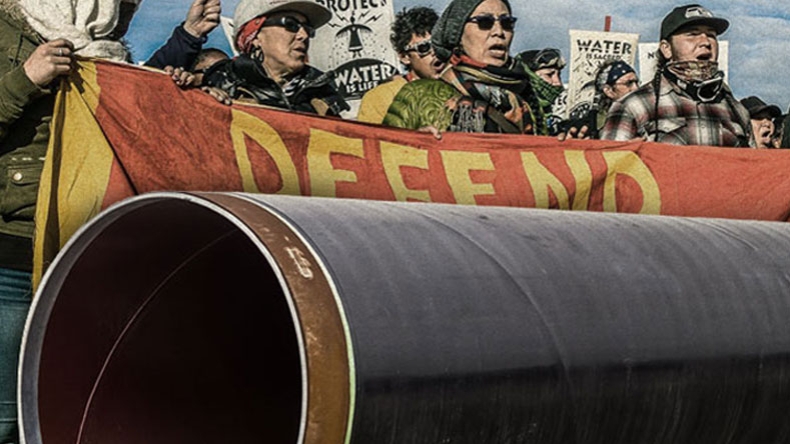'Officiële cijfers', die meestal in het voordeel uitvallen als er sprake is van een westerse dader, stellen dat er 900 doden te betreuren waren, voorts vielen er meer dan 550.000 gewonden, waaronder 3.900 ernstig gewonden. Echter deskundigen die jarenlang onderzoek deden, spreken over minstens 2.000 doden...... Uit die cijfers blijkt dat 6.000 mensen in de maanden en eerste jaren na deze giframp overleden aan de gevolgen van de vergiftiging......
Union Carbide heeft de processen, die recht moesten doen aan de slachtoffers, jarenlang weten te rekken en Dow Chemical dat Unon Carbide overnam heeft deze tactiek overgenomen, zodat heden ten dage de nabestaanden en de door de ramp ernstig chronisch ziek geraakte mensen geen of amper enige schadevergoeding hebben ontvangen......
Het grondwater werd uiteraard ook vergiftigd en schandelijk genoeg hebben de autoriteiten pas 6 jaar geleden een goedwerkende waterleiding aangelegd, al zijn duizenden door het drinken van dit grondwater chronisch ziek geworden, waaronder vooral veel kinderen.........
Bhopal
2 – 3 december 1984, vergeet het niet mensen, zie hoe de grote bedrijven schijt hebben aan de gezondheid van mensen, de winsten gaan ver voor elke humaan en moreel gevoel (dat volgens mij bij het gros van de bedrijven top ontbreekt, daar deze figuren bijna zonder uitzondering psychopaten zijn..).. Al moet ik eerlijk toegeven dat ik geen voorbeeld kan geven van het tegenovergestelde, dus een CEO met enige menselijke compassie......... Neem de topgraaier van Unilever, Polman. Deze kwast roemt Unilever als een duurzaam bedrijf dat rekening houdt met het milieu en dat de belangen van de medewerkers behartigt, waar die ook werken.
In werkelijkheid plakt Unilever een mooi etiket op palmolie als zijnde duurzaam, terwijl de steeds maar groeiende vraag naar palmolie, die vooral door bedrijven als Unilever wordt gegenereerd, niets met duurzaamheid van doen heeft. Uit een rapport bleek dan ook onlangs dat er geen duurzame palmolie bestaat....... Wat Polman verstaat onder goede omstandigheden voor de arbeiders die werken in de palmolie productie, staat in schril contrast tot werkelijkheid....... (niet zelden werken ook kinderen in de productie van palmolie, zoals onlangs bleek uit een onderzoek van o.a. Rainforest Action Network [RAN], waarover ik later deze week zal berichten)
De oerwouden van Indonesië worden verbrand* en gesloopt voor het aanleggen van palmolieplantages, palmolie dat in een enorm aantal supermarktproducten is verwerkt en dat wordt gebruikt voor 'schaamdiesel' ofwel 'biodiesel', waarvan de smerige uitstoot amper onderdoet voor gewone diesel, maar waar zoals gezegd wel oerwouden voor worden gesloopt..........
Er is maar een remedie tegen het verbranden en slopen van oerwouden voor palmolie en de smerige behandeling van de arbeiders in die sector: stop de vraag naar palmolie, ofwel stop helemaal met de productie van dit wanproduct!!
De oerwouden van Indonesië worden verbrand* en gesloopt voor het aanleggen van palmolieplantages, palmolie dat in een enorm aantal supermarktproducten is verwerkt en dat wordt gebruikt voor 'schaamdiesel' ofwel 'biodiesel', waarvan de smerige uitstoot amper onderdoet voor gewone diesel, maar waar zoals gezegd wel oerwouden voor worden gesloopt..........
Er is maar een remedie tegen het verbranden en slopen van oerwouden voor palmolie en de smerige behandeling van de arbeiders in die sector: stop de vraag naar palmolie, ofwel stop helemaal met de productie van dit wanproduct!!
Met CETA en TTIP (voor de laatste voert de EU al sinds januari een peperdure lobby in Washington, CETA is al getekend door de EU...) zullen bedrijven als Dow Chemical de vrije hand krijgen en dat is zoals u wel begrijpt niet in uw of mijn belang, maar in het belang van de bedrijven, de aandeelhouders en de corrupte politici die t.z.t., na hun politieke carrière, zullen worden beloond voor hun misdadige lobby...........
Nogmaals: Vergeet nooit wat er in Bhopal is gebeurd en hoe men daar met de getroffen mensen en hun nabestaanden omging en omgaat!!
Hier een bericht van Brasscheck TV, waarin u naast video's ook weer andere cijfers leest:
Hier een bericht van Brasscheck TV, waarin u naast video's ook weer andere cijfers leest:
Remembering Bhopal
3,000 KILLED AND 150,000 INJURED
TYPICAL COLD CORPORATE RESPONSE
If
you’re old enough, you may remember Bhopal.
It
was the worst industrial disaster in history. Union Carbide, now
owned by Dow Chemical, killed over 3,000, injured 120,000 – and did
next-to-nothing NOTHING to help the people injured.
Poor
design, poor training, poor maintenance, and not taking the dangers
the operation posed to the nearby residents seriously led to this
disaster. In other words, 1,500 counts of negligent homicide.
The
Yes Men reveal the callousness of Dow Chemical
* Bosbranden die de lucht in omringende landen, niet zelden tot meer dan een maand, zo verpesten dat zelfs scholen moeten worden gesloten.......
Zie ook: 'Bhopal giframp 3 december 1984'
Mensen, dat was het voor deze dag, morgen meer berichten, maak er een mooie dag van!




 Tom
Picken
Tom
Picken